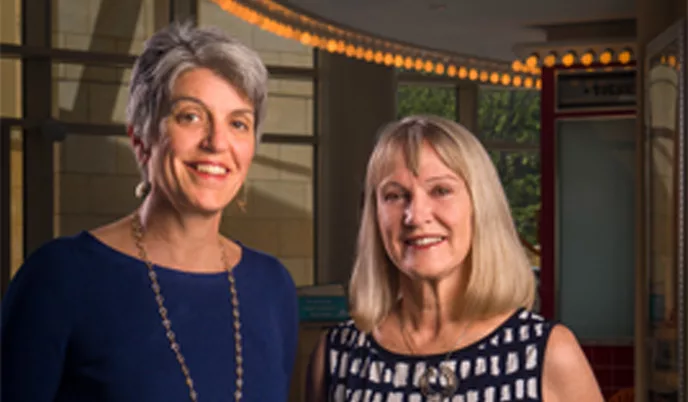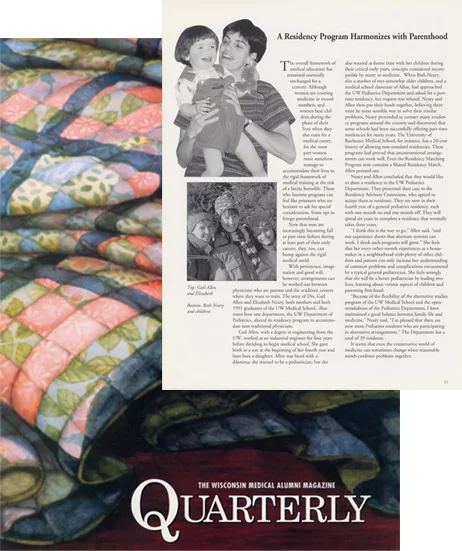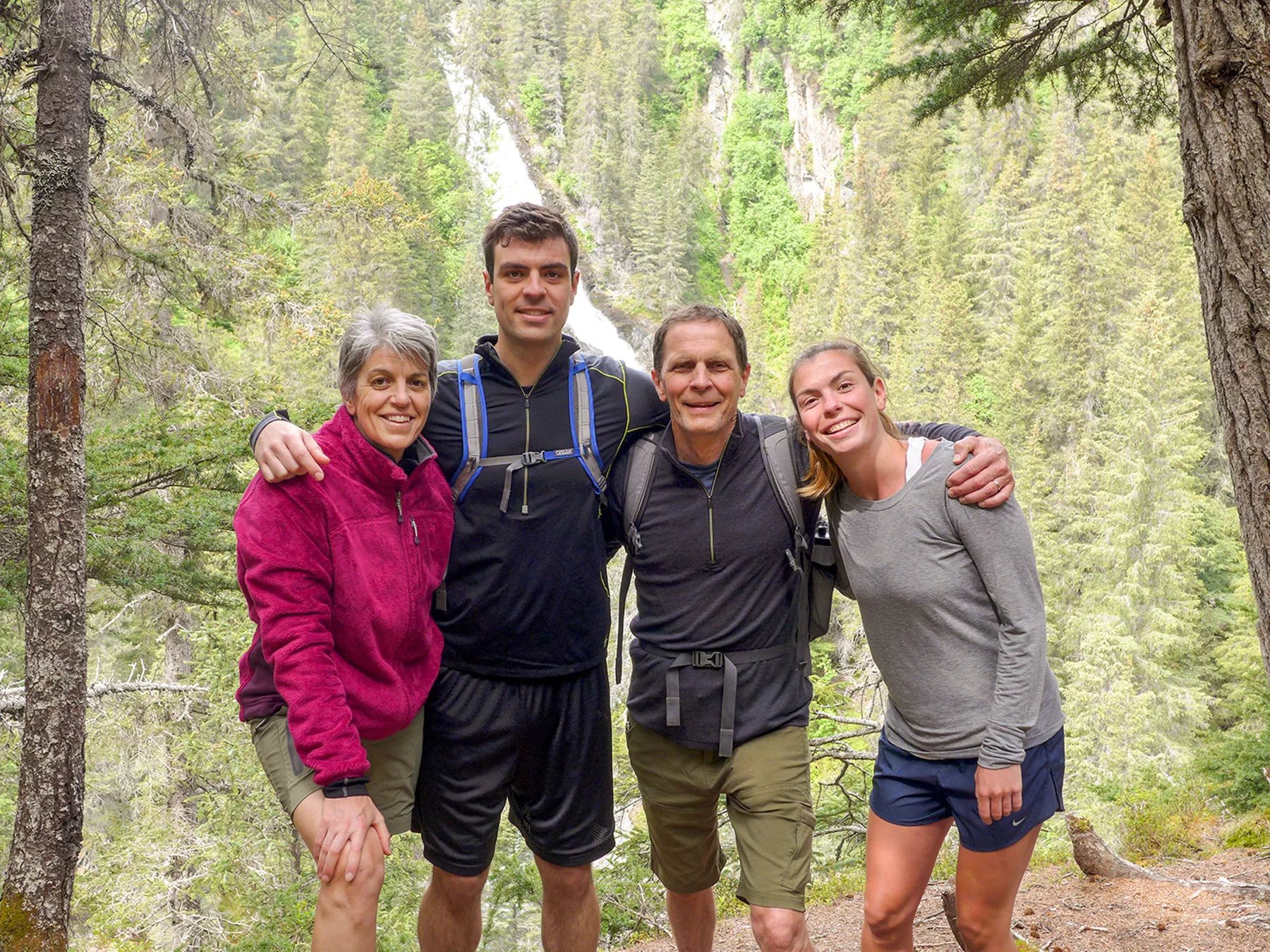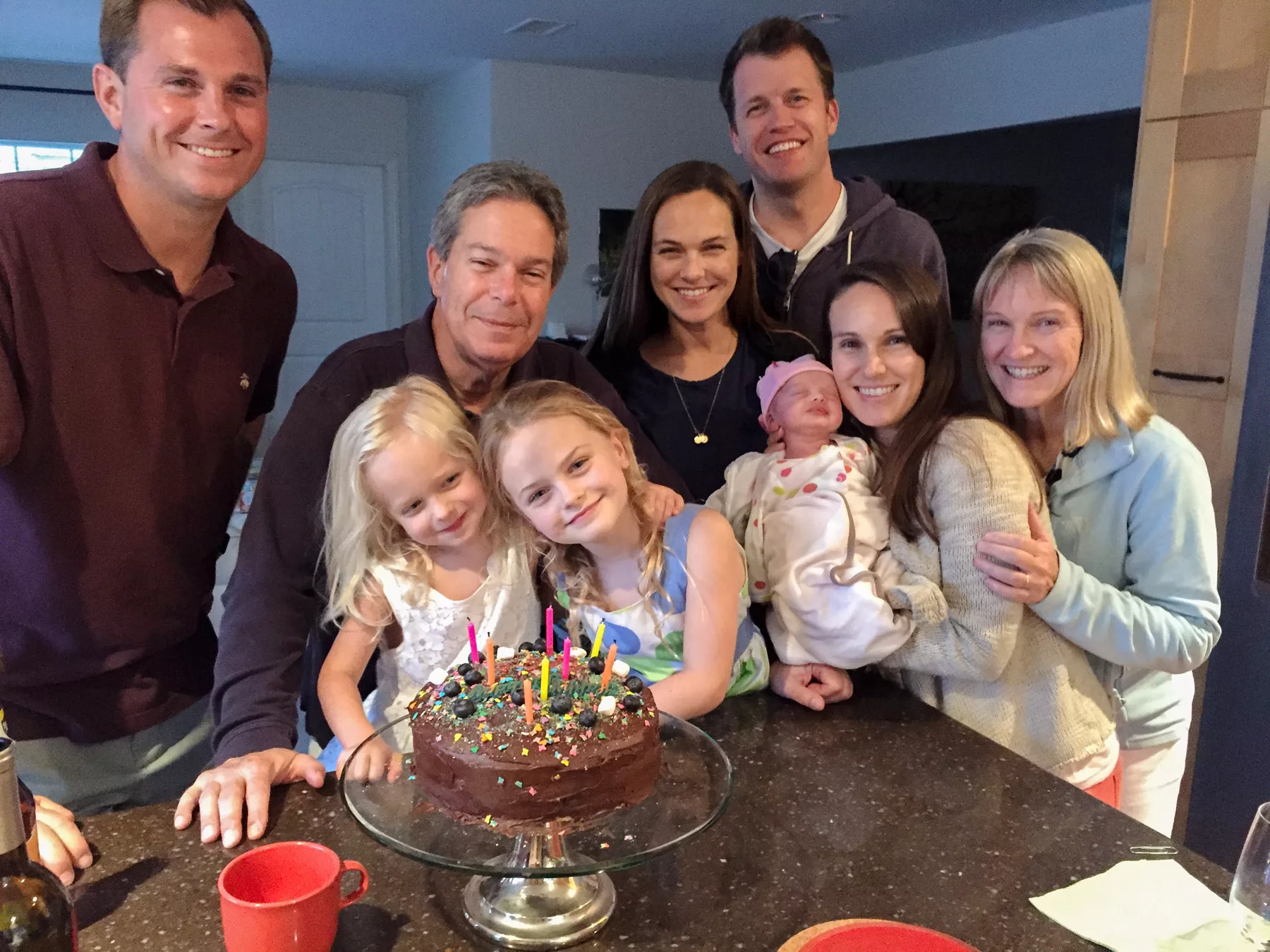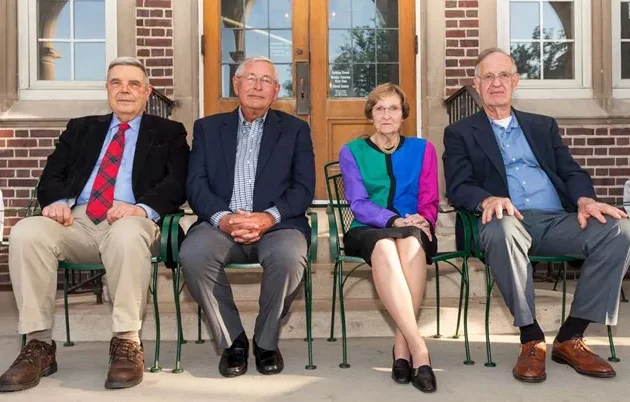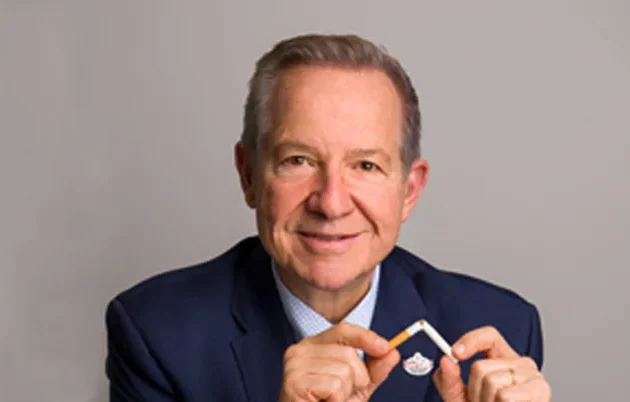Flexing Work Schedules and Family Lives
Throughout residency, Neary and Allen followed a “month on/month off” schedule that gave them time with their children while ensuring that they covered their professional responsibilities. The split schedule doubled their residency from three years to six for each of them, but it allowed flexibility that proved crucial in both of their lives.
Neary recalls how Allen would share call when Neary’s husband’s job took him out of state. And when Allen needed to take medical leaves due to a complicated pregnancy and an unexpected injury, Neary stepped in.
Both emphasize that their husbands’ support was essential. Neary’s husband, William Bula, an architect with Flad Architects, scheduled work-related travel during her “off” months whenever possible, and he was the primary caretaker for their children during her “on” months. Allen’s husband, Jeff Hoerning, PhD — who was completing his doctorate degree in mechanical engineering at the time of his wife’s residency — extended his time in graduate school to accommodate family needs.
“It was critical for us to be flexible in our busy-ness,” reflects Allen. “You don’t just need time, you need flexibility.”
Neary: Shifting Focus to Teaching and Advocacy
After completing her residency in November 1997, Neary began practicing at Associated Physicians, LLP, an independent clinic in Madison.
In addition to the relationships she cultivated with families, she found rewards in teaching medical students, nursing students and residents — often reviewing interesting cases with learners during breaks.
